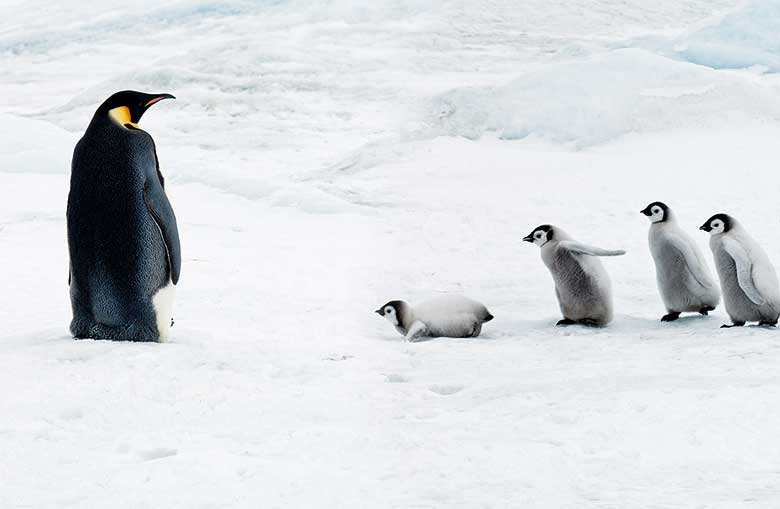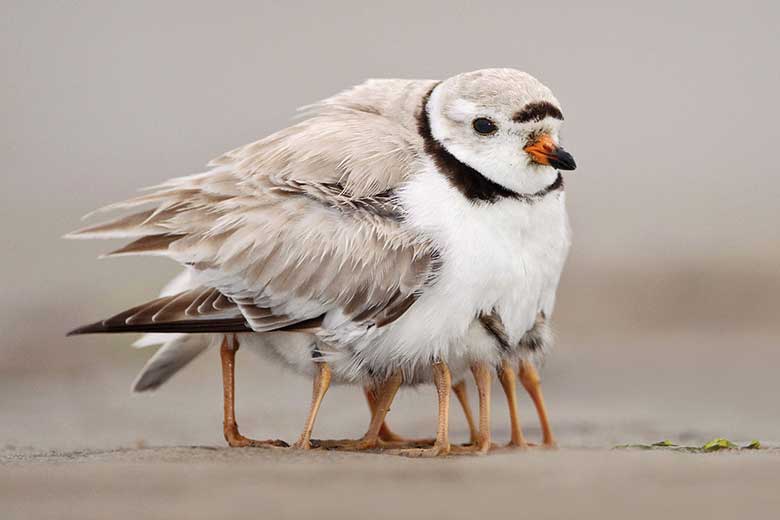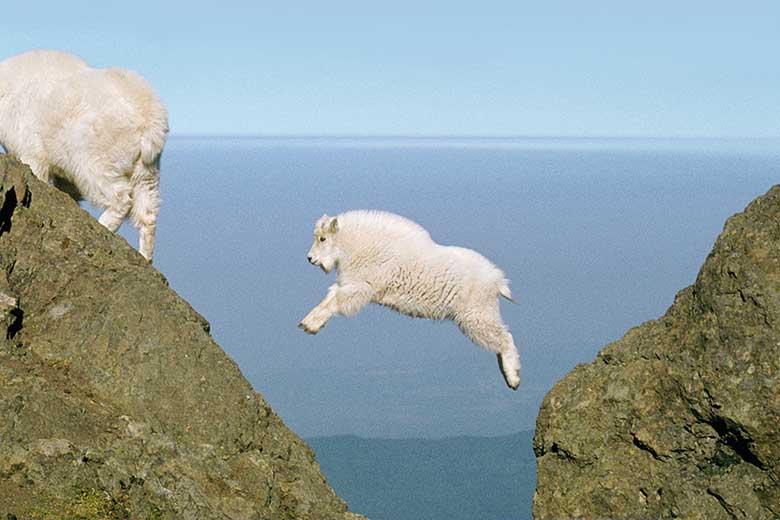‘We’ll have to change that,’ I stated, taking full responsibility for the deceit, based as it was on my vast academic experience
When I first learned that my daughter, Aoife, wanted to attend Dublin’s “Protestant” university, Trinity College, my mind was cast back to my own student days, when, as a Catholic, I would have needed the archbishop’s permission to attend such an establishment. Aoife would be able to wear trousers, too; we had to defy the authorities to gain that privilege.
As an academic ensconced in the business school of the city’s newest university, Dublin City University, I was mystified by her choice: English and drama. English was fine. It was very much in tune with notions of what a good arts degree entailed, and it offered prospects: a PR job, perhaps, or something in broadcasting. But drama? What would prospective employers think of such a choice? Would Aoife ever find work? But my concerns were assuaged when a surreptitious call to the university’s career office revealed that employers thought very highly of the “transferable skills” bestowed on drama students.
With that demon laid to rest and the transferable skills element in her degree programme duly ticked, she was on her own as far as I was concerned. She could vote, so she must therefore be an adult and able to negotiate her own way through the university’s hallowed halls. I did provide occasional support, of a vehicular and financial kind: lifts to the Trinity ball, for instance, or advances for her summer working in the US. That particular summer I also had to track down her examination results – and was then suitably outraged to be given them without her written consent!
There was, though, a hiccup in this hands‑off approach when it came to Aoife’s final year. She phoned me at 3.30pm on the submission day of her undergraduate thesis to state (hysterically) that our printer had jammed and that the thesis was due in at 5pm. There followed a mad dash home to fix the printer and ferry both her and the thesis to the binders. There, to my horror, I discovered her written statement that the thesis was 12,200 words long: 200 more than the maximum permitted. “We’ll have to change that,” I stated, taking full responsibility for the deceit, based as it was on my vast academic experience, which assured me that examiners never actually check word counts.
The obliging thesis binder provided a new front page and we drove through the rush-hour traffic, with Aoife sobbing quietly in the front seat. We made the deadline with a minute to spare – but it later transpired that we needn’t have expended all that emotional energy: an amnesty for late arrivals was announced later that night because of “technical difficulties” with the college computers.
Aoife’s high-flying career in PR never materialised, of course. But I was very glad to pass on the academic baton – and my gown – to her instead.
Kathy Monks is emeritus professor of human resource management at Dublin City University Business School.
It is natural that, just like oil barons and actors, academics tend to come in dynasties. If a university feels like home, why would you ever leave?
So what do you want to do when you leave university?” asked Dr Singleton, the drama lecturer of my 18-year-old self.
“I want your job,” I replied, watching him rear back in his seat in horror.
His fatal error was to have underestimated the daughter of Professor Kathy Monks. Going to university, after all, felt to me like going home. Seminars weren’t that different from conversations that I was used to over the kitchen table, and academics, as far as I was concerned, were simply doing ordinary jobs. This, I suspect, is what we mean by the phrase “cultural capital”.
Even before I went to Trinity College Dublin in the early 1990s, I was marked out by being the daughter of a mother who had gone to university herself and now worked in one. This, you must remember, was the Republic of Ireland, where I was among one of the first generations to attend higher education en masse, and where working mothers were still something of an anomaly.
Ambition had been high at my state school, but of a very different sort from mine. University degrees were viewed mainly as a means to an end: people wanted a sensible qualification in something that would make you a good emigrant. So choosing to take English and drama over law, for which I had the grades, caused a minor scandal.
My mother, as one of the only university-educated parents in the neighbourhood, held councils of war at our kitchen table for all my school friends, instructing them on which degrees to choose and telling them how to apply. She was in her element.
But while her know-how certainly gave me a head start in getting to university, it was how relaxed I felt when I got there that was the real privilege. My confidence in managing my own studies, the acute pleasure I derived from difficult ideas, debate and reading, not to mention my unmerciful bullying of lecturers, whom I respected as little as I did my own mother: this was the outcome of being an academic’s child. I must have been unbearable.
It is natural that, just like oil barons, actors and doctors, academics tend to come in dynasties. If a university feels like home, why would you ever leave? Going on to a doctorate at Trinity, I graduated wearing my mother’s academic gowns. Now that she’s emeritus, those gowns hang on the back of my office door, a perpetual reminder of her influence on my career. Freud would have had a field day.
She is still my secret weapon, too. When I told her that I was applying for my current post at Queen Mary University of London, her response was swift and short: “Send me your CV”. I did. The reply came back: “You have a lot more work to do”. I did that work and I got the job.
I have now appointed myself the unofficial CV doctor for my junior colleagues. As I said to one of them recently, it doesn’t seem fair to keep my mother’s wisdom to myself. The councils of war continue.
Aoife Monks is reader in drama, theatre and performance studies at Queen Mary University of London.

Source:
Getty

When I graduated, my parents knew that I’d now be OK: I’d get to pursue my aspirations. We didn’t feel that. We knew there was no certainty awaiting our children
My parents suspected that I might have a shot at university when I was about 10, so my mum returned to work to save up money. Neither of them, nor any of their five siblings, had had the same opportunity, and they positively glowed through my graduation ceremony at the University of York in 1981.
My choice of subject had been mine alone. A combination of biology and chemistry – life’s chemistry – had always had an inescapable gravity to me. But I had a shock when I got to York. A foretaste of this had come at a science camp at a private school in the next town. At my rural comprehensive, I was taught the standard A‑level curriculum. The private school kids, however, were versed in nucleophilic substitution reactions: a topic normally not taught till university. My first-year classmates also seemed familiar with what was foreign to me; it wasn’t until the second and third years that I found my wind. Hence, I didn’t form romantic memories of university. But I knew it was both valuable and challenging, and my wife and I both expected our own kids to go.
We didn’t push, although they likely sensed our deep desire. We’d instilled the need to learn and to be inquisitive from the crib, and I, by then, was a full professor at the University of Toronto. We talked about the benefits with them. We discussed the pros and cons of various institutions and fields – although the broader nature of North American post-secondary education meant that precise degree choices were less important. Our kids visited a few Ontario universities using the same strategy I’d relied on – just far enough away from home to require residence. They both chose environmental studies, which, at the time – the mid-2000s – we thought wise. The planet surely needed more environmentalists.
We thought we were careful in not pressuring them during their university studies, but that was naive. My wife asked them and worried about their grades, and although I was less directly involved and tried to just be their dad (the good cop), there was no escaping the fact that the people they had to turn their term papers in to were my peers.
We celebrated their graduations: we were so proud. Were we as proud as my parents had been? We had sacrificed less, but that isn’t the relevant issue. When I graduated, my parents knew that I’d now be OK: I’d get to pursue my aspirations. We didn’t feel that. We knew there was no certainty awaiting our children: university was just one of many stepping stones they’d have to navigate.
Neither became an environmentalist, and it’s difficult to draw a straight line from their degree courses to the enjoyable jobs they now have. But in hindsight, their university education played a critical and defining role in who they have become and how they now deal with their careers and their lives. Their broader undergraduate experiences prepared them for society in a far more effective way than mine had.
It turned out that environmental studies included logistics, understanding complex systems, appreciation of market forces and macroeconomic models, among other topics. Given that many of the experimental techniques I learned as an undergraduate have radically evolved to the point where they’re no longer even practised, I am glad that our kids chose their own way. That said, we were blessed this year with our first granddaughter, and I’m already working on a nucleophilic substitution lullaby for her.
Jim Woodgett is director of research and senior investigator at the Lunenfeld-Tanenbaum Research Institute in Toronto.

Source:
Getty

I drove them to open days but stayed out of the way. But I suppose I did use my ‘insider knowledge’ when it came to choosing between institutions
I have been to all seven of my four children’s graduation ceremonies, and I will go to the one remaining. I have loved every minute of them.
They chose very different universities, some ancient, some new, spread across the UK, but my advice to them was always the same I give to any prospective student: choose a subject you really want to study, go and look at the place to see how you feel about it and treat the glossy publicity in the same way you would treat any other form of advertising: don’t take anything at face value.
I drove a couple of them to open days but stayed out of the way. Going to university is the first step towards adulthood, and a clinging parent is the last thing any young person needs. But I suppose I did use my “insider knowledge” when it came to choosing between institutions. As an external examiner, an assessor and then a member of the Quality Assurance Agency board for a few years, I knew a fair bit about dodgy quality control, staff shortages, research prioritised over teaching and, above all, the spuriousness of league tables. I advised my children to read the small print and encouraged them to look up the views of past and present students. I also warned that although a university might claim to be in the top 10, there might be some subjects that are poorly taught and are coasting on the back of institutional regard.
Once they were at their chosen institutions, I was discouraged on several occasions by uneven levels of student support and a lack of timely feedback; one of my children waited three months at an institution displaying banners boasting of its status as “University of the Year”. But I intervened directly only once, when one of my daughters missed two essay deadlines because of her father’s sudden death and was threatened with failure. The tutor she had informed had forgotten to pass on the message – but, interestingly, the communication problem was blamed on the secretary!
I also proofread drafts of essays and dissertations. This was necessary in the case of the child with learning problems, who had been supported all through school with extra time but received no assistance at all at university. Student support was enormously variable across all the institutions and, once again, bore no relation to their position in league tables or to their claims of excellence. When my children rang me, I used to urge them to make sure they complained.
Despite my misgivings – and the steadily rising costs – all of them benefited from their experiences. They became visibly more mature and independent, and built strong friendships. All said they left university realising how little they knew and how much more there was to learn, which I think is proof of success. It is also proof that university should be seen as totally different from school – and parents, academic or not, should refrain from interfering.
Susan Bassnett is professor of comparative literature at the universities of Warwick and Glasgow.

Source:
Getty

I am resolved to constrain my input to advice requested. I’ll doubtless attend open days – but will fight the urge to engage, for fear of an outbreak of embarrassing dad syndrome
I often think about the pride of parents as I participate in graduation ceremonies. I imagine how it must feel to see your child, now an adult, crossing the stage in their gown, collecting their hard-won parchment, moving into a new stage of their lives.
My children, Emelia (13) and Hugo (10), have some ways to go on their academic journey. They’ve made the transition from the Irish education system to Australia’s pretty well, and they show every sign of wanting to go to university in the future. I’m uncertain how much of that is down to an expectation that their dad will still be in charge of their local option when they apply, and a sense that it might be useful to be related to the boss. But the prospect of their entering higher education does excite me.
All the clichés about university have foundations in truth. You learn to learn, you make new and lifelong friends, you forge a new path towards a career and future life. Higher education is a privilege – not many people think of it like that at the time, but with hindsight, you can see that it is – and I hope that my children can learn that in time.
Making the right choices in terms of study is the most difficult thing they will face. But I’ve no intention of chaperoning them down alleyways of vicarious ambition of my own. My perspective on subject choice is pretty straightforward. You should not study something that you feel compelled to study because of parental or peer pressure. Nor should you study something in pursuit of the pot of gold at the end of the career path of current demand. The rainbow is always moving and, besides, you can’t spend a lifetime in a job whose only reward is financial. My children will spend long enough working after graduation that I want them to find a path to pursuits they enjoy. Happiness is the primary measure of success.
The same applies to their choice of institution. Emelia was born in Cambridge, in the UK, and has stated plainly that she intends to return there to study. Hugo has his sights set on an as yet undefined 2+2 arrangement between my institution and the University of Oxford. Who knows? I’m sure my insight into the sector will inform these future conversations, but, even now, as my eldest begins what in Australia is known as her middle schooling, I am resolved to constrain my input only to advice requested. I’ll doubtless attend the open days – out of professional curiosity – but will fight the urge to actively engage, for fear of an outbreak of embarrassing dad syndrome.
It’s no easier now to imagine my two at university than it was to imagine their first day at primary school when they were babies. But I think it’s important to remember that university students are young adults, even if they’ll always be your children. Letting them find their own way while reminding them that if they do stray a little, I’ve been there, bought the T-shirt and can offer help at any stage: that’s how I hope it plays out.
As for the graduation – well, I’ve imagined it countless times as I’ve applauded our students across the stage. That’s one time when I might use my position for personal gain: I’d love to be on the stage when they cross it. Embarrassing dad syndrome be damned!
David Lloyd is vice-chancellor and president of the University of South Australia.

Source:
Getty

Our daughter was content to allow us to guide her towards universities that offered diverse opportunities, and we, in turn, were happy to let her make final choices based on her desired major
When their children were applying to college, our non-academic friends fussed over the cachet of University X or the position of College Y in dubious rankings.
As academics, my husband and I took a much more laissez-faire approach to our only child’s recent application process. But that was because we had the comfort of a great deal of “industry knowledge” about the institutions that she was considering, which we had gleaned from having colleagues there, from teaching or mentoring their graduates or from whispers on the academic grapevine. Our daughter was content to allow us to guide her towards universities that offered diverse opportunities, and we, in turn, were happy to let her make final choices based on her desired major.
We certainly did not believe that going to college was trivial. We never even imagined that our daughter would not attend college, but we viewed it as an important first step towards an education, not an endpoint in itself. This message was absorbed early by our daughter, as evidenced by her unusual response, as a teenager, to a neighbour who enquired about her plans for when she grew up. When our child honestly expressed uncertainty, the neighbour quickly snorted: “Well, I always knew I would go to college; too bad your parents don’t expect that of you!” Our daughter laughed and said: “Oh! I meant that my postdoc was uncertain, not my undergraduate plans!” A teen who refers to college as “undergraduate” training is likely to be jammed into a school locker or duct-taped to a wall, but this was the language of our home, and she was an earnest girl.
Extending our appearance of ennui about college, we were virtual ghosts during campus tours, attending only when long-distance travel was required. When we did go, we were conspicuously mute, letting our daughter ask questions based on more than a decade of family dinners at which conversations had focused on her future. We signalled “not my circus, not my monkeys” to tour guides to emphasise that this was exclusively our daughter’s choice. We felt certain that we’d already offered her significant advantages before this moment arrived – from essay-writing tips to strategies for interviewing with admissions personnel. Serving on admissions and scholastic committees and interacting with students (and various faculty and administrators) in our respective jobs had cemented our understanding of the myriad expectations and disappointments around which to steer her.
The pendulum will shift of course. We will be inexpressibly overjoyed when our child accepts her college diploma: the event will not be diminished by past decades of sweating in our regalia through graduation ceremonies for other people’s children. Rather, we will swap perspiration for happy tears, and cross our fingers for a good seat during her future dissertation defence!
Jennifer Schnellmann is associate professor of pharmacology at the University of Arizona.

Source:
Getty

Had I actually been paying, would I have tried to persuade her to select a more ‘practical’ discipline? Absolutely!
Thirteen years after the second of my two daughters entered higher education, I still would have no qualms deciding that Wellesley College in Massachusetts made sense. One big reason for that is that, in lieu of paying local property taxes, the liberal arts college offers town residents tuition fees abatement. At today’s prices – $63,916 (£50,000) per annum per child for tuition, room and board – the saving could amount to half a million dollars.
Because my own father never even completed secondary school, my family always encouraged me to pursue post-secondary education right through graduate school. I came of age at a time when professional opportunities for someone with a PhD in English from the University of California, Berkeley seemed endless. But how that has changed for subsequent generations of graduates we know only too well. And what it means for “non-traditional” students – the euphemism for underprivileged minorities – is especially significant.
My younger daughter was an undergraduate French major. Had I actually been paying tuition, would I have tried to persuade her to select a more “practical” discipline? Absolutely! As it happened, however, even her MA at New York University was fully funded. So, like parents everywhere, my motto was: “So long as she’s happy!” – even if it took another graduate degree in public administration, costing more than $60,000, to qualify her for gainful employment.
My elder daughter knew from early childhood that she wanted to be “a scientist” – a goal I encouraged by supporting whatever agenda she set. I still recall her asking me for a ride to a three-hour lecture on the Human Genome Project when she was only 14. There, I witnessed in amazement her rapt attention to seemingly undecipherable graphs and diagrams when it was all I could do to stay awake. Majoring in biological chemistry at Wellesley and doing both a PhD and a postdoc in genetics at Harvard University (six years each) were entirely her decisions – if only because I lacked sufficient knowledge to offer advice.
While continuing to bask in reflected glory now that she is in a tenure-track position at an Ivy League university, I have also come to appreciate the tremendous physical and emotional demands made on young academics. As a consequence, when I’m asked whether it pays to pursue an academic career, I compare it to an addiction that no 12‑step programme can cure. Fierce competition for scarce funds to keep a lab afloat inevitably takes its toll, so that even though it would have been impossible to discourage my daughter, knowing what I do now, perhaps I should at least have tried.
Lately, in fact, I have even begun to question the benefit of pursuing a liberal arts degree without regard to expense or genuine interest. My developing ambivalence began to crystallise after I began volunteering in the college office of the Thurgood Marshall Academy in Harlem, where I was assigned to help non-traditional minority students apply for college and seek financial aid. While prematurely foreclosing the possibility of future academic success is both retrograde and immoral, my quandary was how realistically to convey that, by itself, the much-coveted “college degree” might not transform the students’ lives – especially if it also means accruing crushing debt that necessarily limits their vocational choices. My only solution was to help them make the strongest possible case for financial aid in the hope that they would not be any worse off, regardless of academic outcome.
But, despite my ambivalence, the joy of accomplishment they showed at the end-of-year “college acceptance” party brought me a vicarious pride akin to what I felt at my own daughters’ success. Even for an old cynic like me, the lustre of higher education evidently hasn’t quite all worn off.
Richard Larschan is emeritus professor of English at the University of Massachusetts-Dartmouth.

Source:
REX

Open days aren’t much help when you live 1,500km away. This was where my insider knowledge proved useful. I was able to organise meetings with the course coordinators
I had the privilege of being first in my family to go to university: the University of Twente in the Netherlands. More by chance than anything else, I ended up in a university career, which led my family and me to emigrate to Australia in 2005.
It was always a given for us that if our two daughters, then aged 14 and 18, had the ability to go to university, we would support them in every way possible. Our first Australian home was in Armidale, New South Wales, where I got a job at the University of New England. A couple of months after our arrival, I was on a teaching assignment in Vietnam and got a call from my eldest, Merel.
“Dad, I’ve just been to the open day at New England, and now I finally know what I want to do!” she announced.
“That’s great – so what is it?” I replied.
“Marine science.”
“Err, yes. That sounds really interesting. But you do realise you have no background whatsoever in science?”
“They said that doesn’t matter. If I put the effort in, they will help me.”
I found all of this a bit hard to believe – that’s what an upbringing in an education system that locks you into a specific academic track from the age of 14 does to you! But I knew the associate dean of teaching and learning in the science faculty reasonably well, so I arranged for a meeting. We had a really good discussion, and although I was still sceptical, she convinced me that they would indeed bring Merel up to scratch (and beyond) if she applied herself.
The rest is history. Merel completed her bachelor’s in three years and is now in the final stages of a PhD at the University of Tasmania, with a four-month research trip to Antarctica under her belt, as well as journal articles and international conference presentations.
Our younger daughter, Amber, knew from a much earlier time that she wanted to do graphic design. When it came to applying, I was already on to my current employment at the University of Melbourne, and it was clear that the family would have to relocate. There’s a good choice of graphic design courses in Melbourne, but open days aren’t much help when you live 1,500km away.
This was where my insider knowledge proved particularly useful. I was able to organise personal meetings for Amber with the course coordinators of the two programmes that appealed most to her from the documentation she could find. These were very useful, and Amber made a choice that she was very happy with.
Again, the rest is history. She also completed her bachelor’s in three years, did a six-month exchange in the Netherlands, won an international award and internship in London and now is gainfully employed in a high-end Melbourne studio.
I don’t take much credit for this; Merel and Amber have basically done it all themselves. And I don’t underestimate their achievements. Despite being an academic, my perspective on universities is far from jaded or cynical. I love them, and I believe that they can transform lives. They have certainly transformed ours.
Leo Goedegebuure is director of the LH Martin Institute at the University of Melbourne.
POSTSCRIPT:
Print headline: Ask me anything, but make your own choice
Register to continue
Why register?
- Registration is free and only takes a moment
- Once registered, you can read 3 articles a month
- Sign up for our newsletter
Subscribe
Or subscribe for unlimited access to:
- Unlimited access to news, views, insights & reviews
- Digital editions
- Digital access to THE’s university and college rankings analysis
Already registered or a current subscriber? Login





